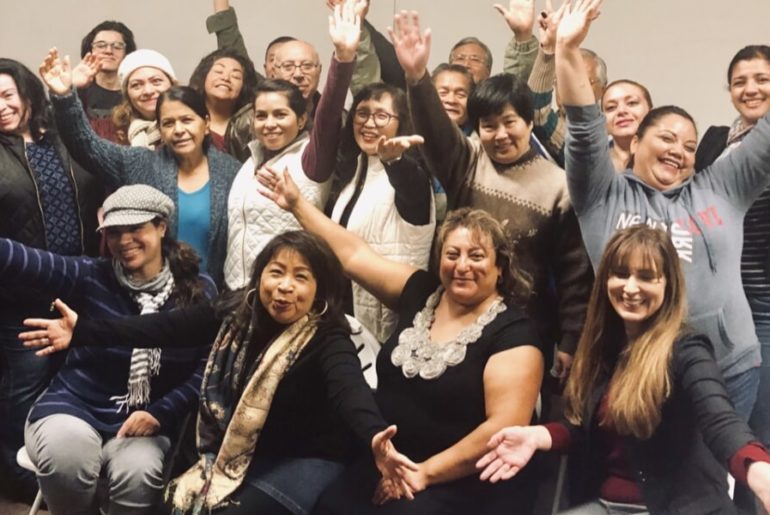Even though the Trump Administration’s “public charge” rule is not in effect due to court injunctions, immigrants in New York are reluctant to use services due to confusion, fear and misinformation. Make the Road New York, the Consortium For Worker Education and CUNY School of Labor and Urban Studies hosted a panel of immigration experts last Friday to clarify the current policy and proposed changes. The panel stressed that nothing has changed. Because the public charge regulations were blocked, the regulations will not be implemented, until another legal decision is made. New York Commissioner Bitta Mostofi made a similar statement about the injunction,
“I am thrilled that the court recognized the harmful impact this rule would have on our immigrant families, and has stopped it from going into effect for now. New York City residents who have questions or concerns about public charge and the impact of public benefits on immigration can access city-funded, trusted legal help by calling ActionNYC at 311 or 1-800-354-0365 and saying ‘public charge.”
Advocates in the education and workforce development field are making like-minded efforts to prepare the sector to reassure students and workers, and provide them with accurate information about the public charge rule. The day after the regulations were expected to go into effect, the National Skills Coalition (NSC) in partnership with the TESOL International Association held an at-capacity webinar on the new developments in federal immigration policy and their implications for TESOL educators and their students. TESOL International Association, formerly Teachers of English to Speakers of Other Languages, is the largest professional organization for teachers of English as a second or foreign language (also commonly known as ESL teachers).
Amanda Bergson-Shilcock, Senior Fellow with NSC, highlighted key points for educators and school administrators, as it relates to public charge:
- “Participating in English classes is a good thing and will help [immigrants] with their green card application.” Bergson-Shilcock urged educators to make sure students know not to drop out of English as a Second Language, adult education or training programs; and to reassure their students that participating in education and workforce programs does NOT count against immigrants in the public charge test. In fact, English language skills, educational attainment and employment count as positive considerations in the public charge test. Pursuing education or training doesn’t hurt immigrants applying for green cards, and can actually help a person’s ‘totality of circumstances’ by improving their education and skills.
- “Staff training is vital to counter misinformation.” Administrators should be aware of chilling effects—enrollment drops in many publicly funded programs are already occurring—and should ensure that front line staff, receptionists, test administrators, student advisors, instructors, case managers, front desk person, and anyone who has contact with immigrant students and faculty, are trained to deliver accurate information. She warned educators not to attempt to provide legal advice to immigrants but instead be prepared to refer students to reputable legal services providers for additional guidance.
- “Get ready for new requests for documentation.” If the public charge rule goes into effect, green-card applicants will be required to submit enrollment documents, transcripts, and other proof of participation from educational institutions, or a standard letter stating that they do not issue such documents. Applicants must attach transcripts and other documents demonstrating their educational attainment, occupational skills and credentials and English proficiency. Educational programs should also be prepared to issue documentation or a standard letter stating that they do not issue such documents. This is an additional mandate for education/higher education providers, many of which are community based organizations that do not have processes in place to issue transcripts and documentation. The mandate comes with no additional funding to support the new cost that will likely be imposed if the rule is implemented.
The webinar concluded by reiterating that the public charge regulation is not in effect while the court injunctions hold and shared resources for educators, including NSC’s public charge fact sheets for adult educators and higher education advocates and a state-by-state list of free and low-cost immigration services.
Learn more by reading Revolution English’s coverage on the Trump Administration’s “public charge” rule and the court injunctions that stopped it (at least temporarily) from going into effect.

